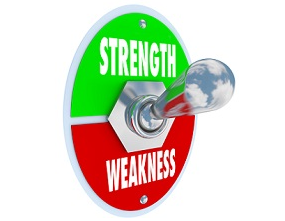Answer the “What is your greatest weakness” interview question
By: Together Abroad 26-02-2015

I would like to talk about one of the most common and aggravating interview questions that job candidates can encounter – “Tell me: What is your greatest weakness?”
Now this question might sound quite cliché but it is still very much asked in interviews held today. There really is no standard correct response but there are wrong responses that should be avoided as they could produce undesirable outcomes:
• Do not respond to the interviewer saying that you do not have any weaknesses
• Do not try to gloss over the question and mask a strength or a virtue as a weakness, the interviewer will see right through this
• Do not bring out a laundry list of your worst flaws for display. Such as I procrastinate, I am a habitual late comer. This will only act as a red flag and hurt your chances of getting the job
An optimal approach to the question, “Tell me about your greatest weakness” would be as a starting point to acknowledge your humanity by proffering a genuine weakness. Then you can follow that up by demonstrating how you are addressing the issues relating to that weakness, and how you are leveraging on the learning opportunities for professional and personal growth and development.
It is very important that job candidates distinguish between essential and non-essential skills required for success on the job. In line with this, it is advisable to mention only non-essential skills that are not critical for the job as weak spots. Optimal responses should always be framed around how a “negative” has been turned into a positive learning experience and leveraged on for personal growth and potential value added for the organisation.
Below are a few pointers on how to strategically approach this question:
1. Be honest and authentic – you want to highlight an honest weakness that is non-essential to the role you seek to fill
2. Avoid platitudes and crammed responses such as “I am a perfectionist” or “I am a workaholic” or “I work best under a lot of pressure”
3. The second part of your response and equally as important should show that you are self-aware by how you are working on mitigating that weakness
4. Talk about how you can apply the lessons you have learned to add value to your future endeavours
By Tamkara Adun